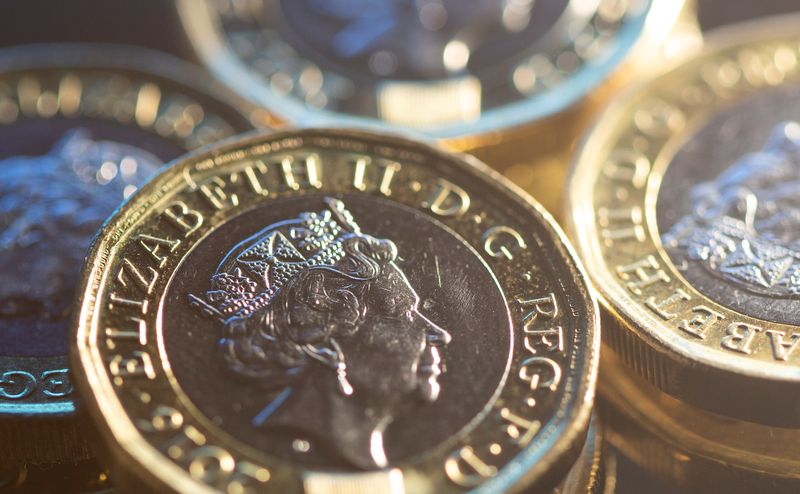By David Milliken
LONDON (Reuters) -British authorities will not decide until next year at the earliest on whether to go ahead with a state-backed digital pound that would provide an alternative to payments operated by banks and technology companies.
The Bank of England and Britain's finance ministry said they would continue preparatory work following a public consultation which drew 50,000 responses, many raising privacy concerns.
"No final decision has been made to pursue a digital pound - also called a central bank digital currency," the BoE and finance ministry said in a joint statement.
"The Bank and HM Treasury have progressed to the design phase of work on a digital pound and expect to decide whether to proceed to the build phase around the middle of the decade."
Prime Minister Rishi Sunak was an early supporter of the idea, calling on the BoE to start work on the project in 2021 when he was finance minister.
However, even if the project does get a go-ahead, it is unlikely to be operational until near the end of the decade.
Under the proposals, Britons would be able to hold electronic pounds - with the same value as physical cash - up to a limit of 10,000 to 20,000 pounds ($12,700-$25,400). Like cash, the money would not pay interest.
Banks had lobbied for a lower limit of 3,000 to 5,000 pounds, fearing the project could lead to an outflow of money from standard bank accounts.
Last month, British lawmakers said the case for digital cash had not been made. Other central banks, including the European Central Bank and the U.S. Federal Reserve, are also wrestling with privacy issues.
The European Union's legislation for underpinning a digital euro has been slowed by privacy concerns, prompting the bloc's financial services chief Mairead McGuinness to say last year that it was not a "Big Brother project".
Britain says a digital pound would be private but not anonymous, unlike physical cash.
As with existing bank accounts and credit card payments, authorities would be able to track transactions they suspect involve money laundering or finance terrorism.
"A digital pound would not replace cash, so the public would continue to have access to an anonymous payment option," the BoE and government said in their response to the consultation.
The use of physical cash is dwindling in Britain and the BoE has said a state-backed digital option could provide alternatives to existing bank payments or separate payment systems which large technology companies might develop.
Legislation would be put in place to ensure privacy following further consultation if the project goes ahead, the government said, adding it also planned further public consultations.

The digital currency would not allow the government to program it in a way which blocked holders from making certain transactions, a concern of some privacy advocates.
($1 = 0.7860 pounds)